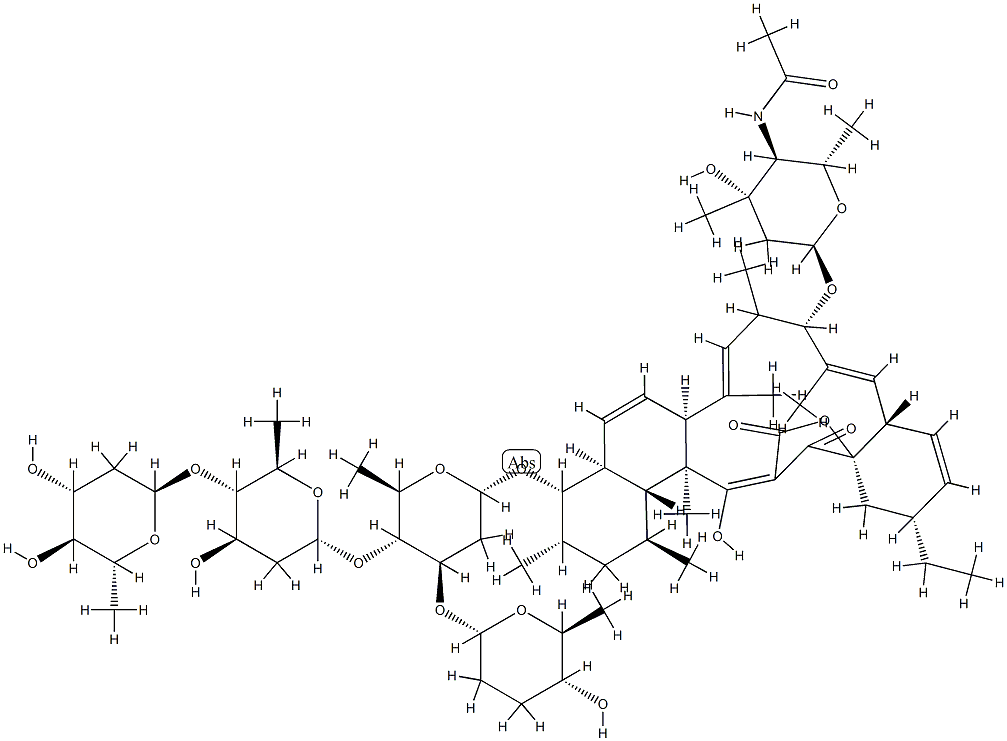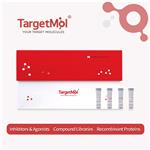Saccharocarcin A is an antibiotic originally isolated from S. aerocolonigenes subsp. antibiotica. It is active against M. luteus, S. aureus, E. coli, P. aeruginosa, and C. albicans in a disc assay. Saccharocarcin A inhibits C. trachomatis infection by 88% without inducing cytotoxicity in McCoy cells when used at a concentration of 0.5 μg/ml.
Saccharocarcin A is an unusual tetronic acid structurally related to kijanimicin, chlorothricin, tetrocarcin and versipelostatin, which has pronounced activity against Gram positive bacteria and Chlamydia trachomatis. Limited availability has restricted further investigation of this metabolite, however several members of this class have received considerable literature focus. Versipelostatin inhibits transcription from the promoter of GRP78, a gene that is activated as part of a stress signalling pathway under glucose deprivation resulting in unfolded protein response (UPR), causing death of glucose-deprived cells. Tetrocarcin A appears to target the phosphatidylinositide-3'-kinase/Akt signalling pathway.
Saccharocarcin A is an unusual tetronic acid with inhibitory effects on gram positive bacteria.

